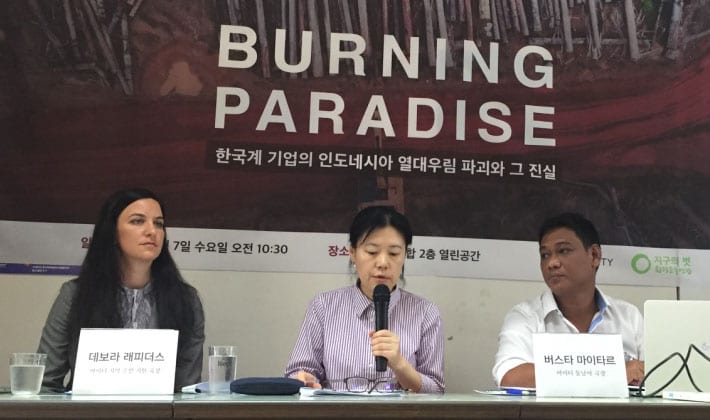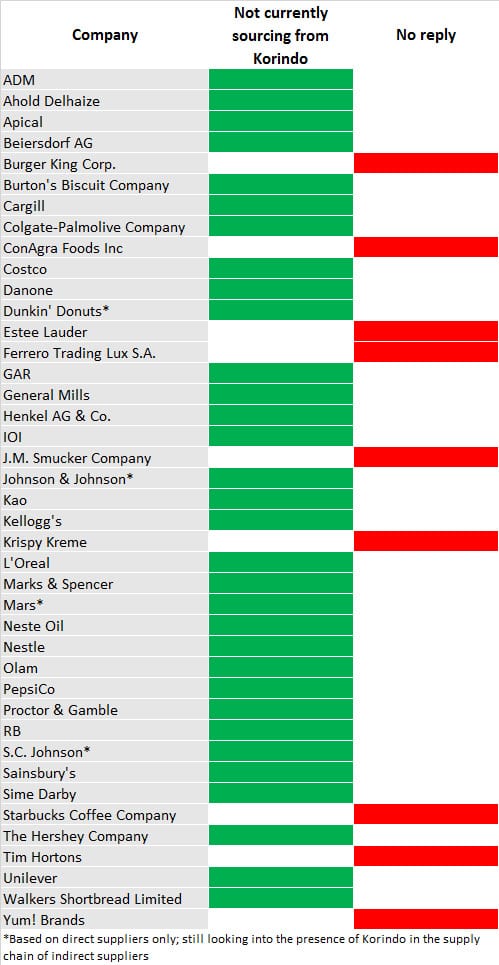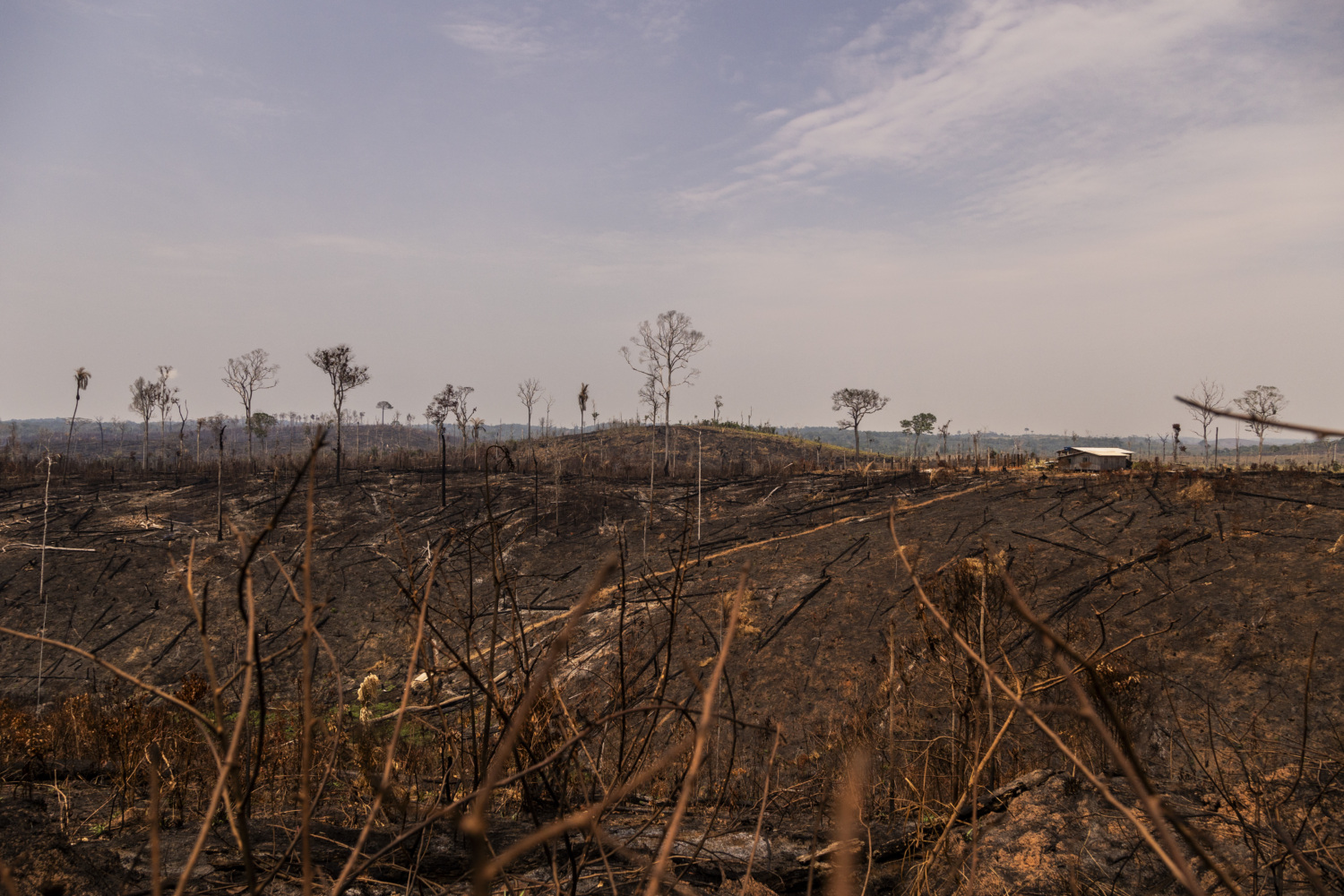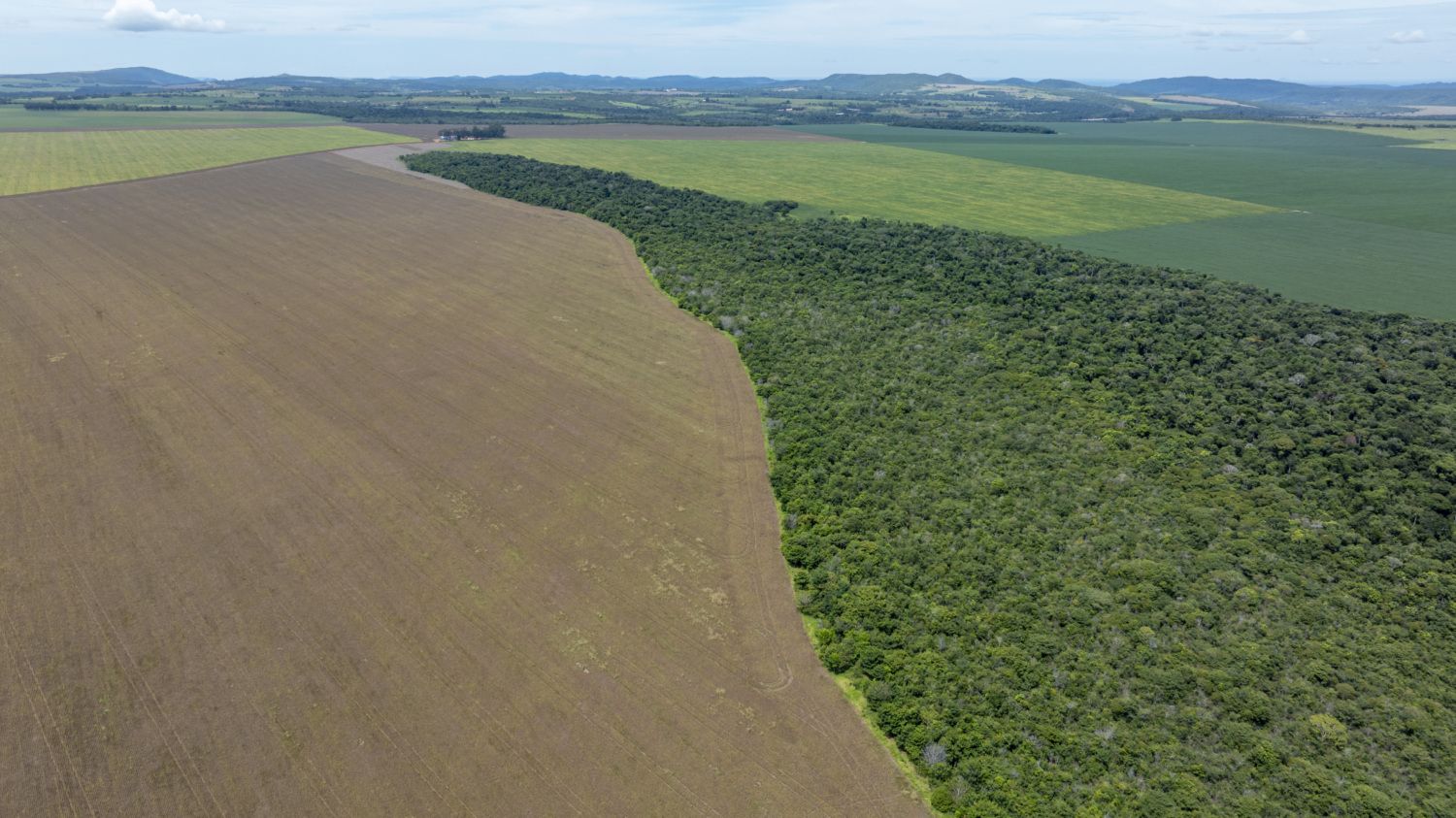
Rainforest Campaign Gets Big Response in South Korea
It’s been a busy and exciting few weeks for the Mighty team. Following the launch of our “Burning Paradise” report on Korindo, which prompted the Indonesian government to announce a major investigation and garnered widespread media coverage, Mighty team members Bustar Maitar and Deborah Lapidus traveled to South Korea to participate in a speaking and media tour, organized by the Korea Federation for Environmental Movements (KFEM). The tour consisted of lectures at Seoul National University, a press conference, an activist rally, and meetings with a range of related companies, civil society organizations, and government officials. The story was covered by several major Korean news outlets, including SisaIN, Kyung Huang News, Newsis, Korea IT Times, Munhwa Journal, and many others. Notably, this citizen-led campaign in Korea proves that sustainability concerns are rising across Asia, spreading beyond the mainstays of Europe and North America, a sign of major progress in the fight to end deforestation.

The extensive evidence of Korindo’s destruction of a rainforest paradise in Papua, Indonesia, sent shock waves throughout Korea, where Korindo, owned by the influential Korean Seung family, had spent several decades portraying itself as a “green” company that plants trees in Indonesia. Korindo was visibly rattled that the truth about their devastating practices was being revealed on their home turf. A team of Korindo executives even flew in from Jakarta to follow the tour in an apparent effort to cast doubt on the report. However, Korindo has failed to provide any counter-evidence or data to make its case.
In meetings between NGO coalition members and Korindo in both Korea and Jakarta, Korindo executives appeared to be stuck in the 1950s when it came to their approach to development, and seemed entirely unaware of the broader trends in their industry toward responsible agriculture. The Korindo executives refused to acknowledge they had a problem, defended their deforestation, and couldn’t seem to get their story straight about the fires: first denying them altogether and then admitting there were fires, but placing the blame on a number of different factors ranging from the weather to local communities to workers trying to eliminate beehives in leftover biomass.
Meanwhile, the pressure on Korindo is mounting. Every week, more and more global palm oil and wood products buyers report that they are excluding Korindo from their supply chains. You can see a more detailed graph of who has taken action below. Rainforest Action Network did a case study of community rights violations and deforestation at Korindo’s Korintiga logging concession on its Forests and Finance website. Greenpeace profiled Korindo’s destruction in a report it released this week, A Deadly Trade Off. The Indonesian government announced and even tweeted that it plans to visit Korindo’s concessions to investigate allegations of illegal forest burning. The clamor for action was heightened last week when Harvard and Columbia researchers released a new study finding that in 2015 the toxic haze released by forest fires in Indonesia led to a staggering 100,300 premature deaths across Southeast Asia.
The world is watching Korindo right now. But it’s going to take even more action by consumers across the globe to get Korindo out of the mud and at the negotiating table. Join the campaign by signing our petition to demand that Korindo agree to a moratorium on forest clearing and stop taking community lands.



